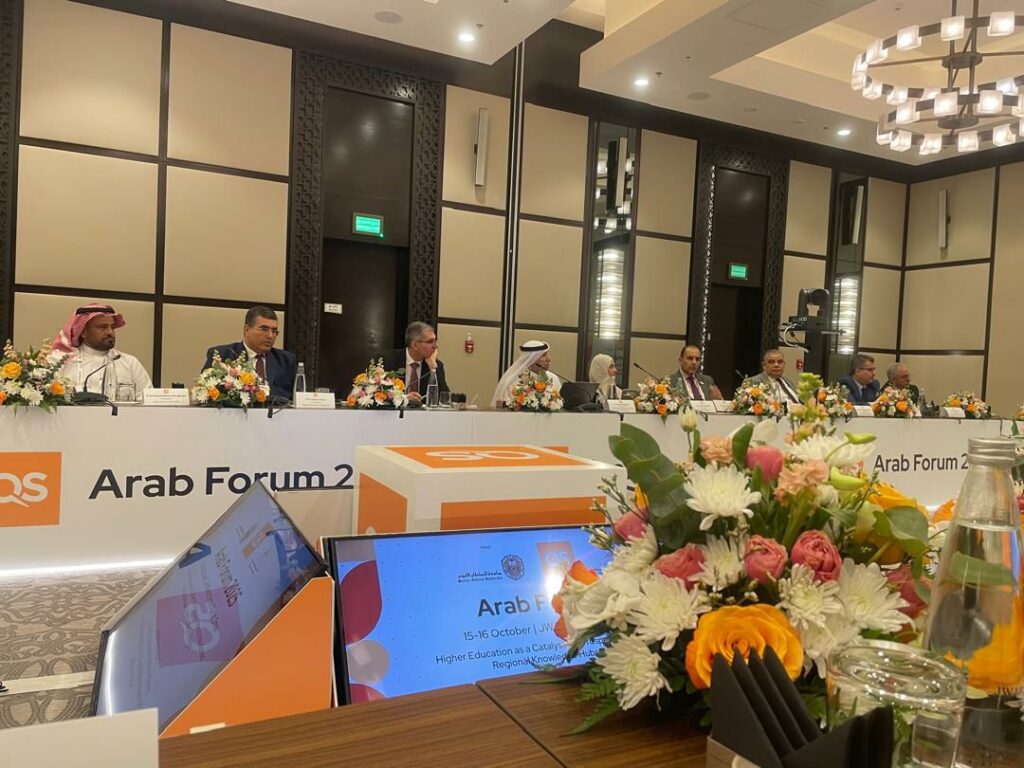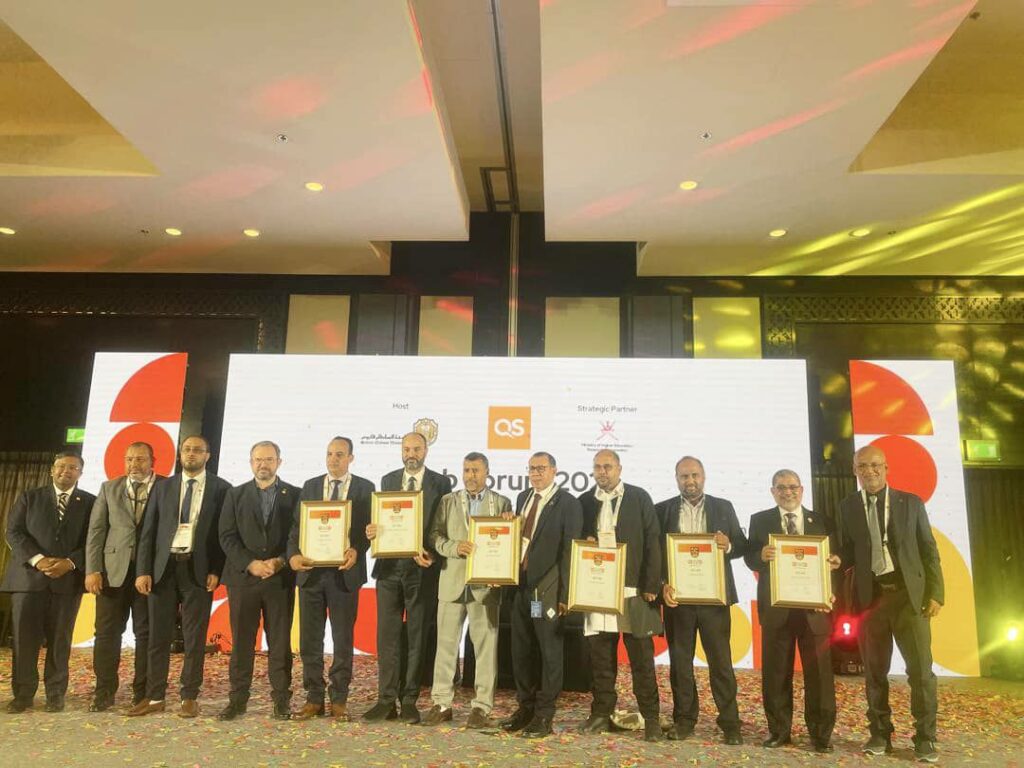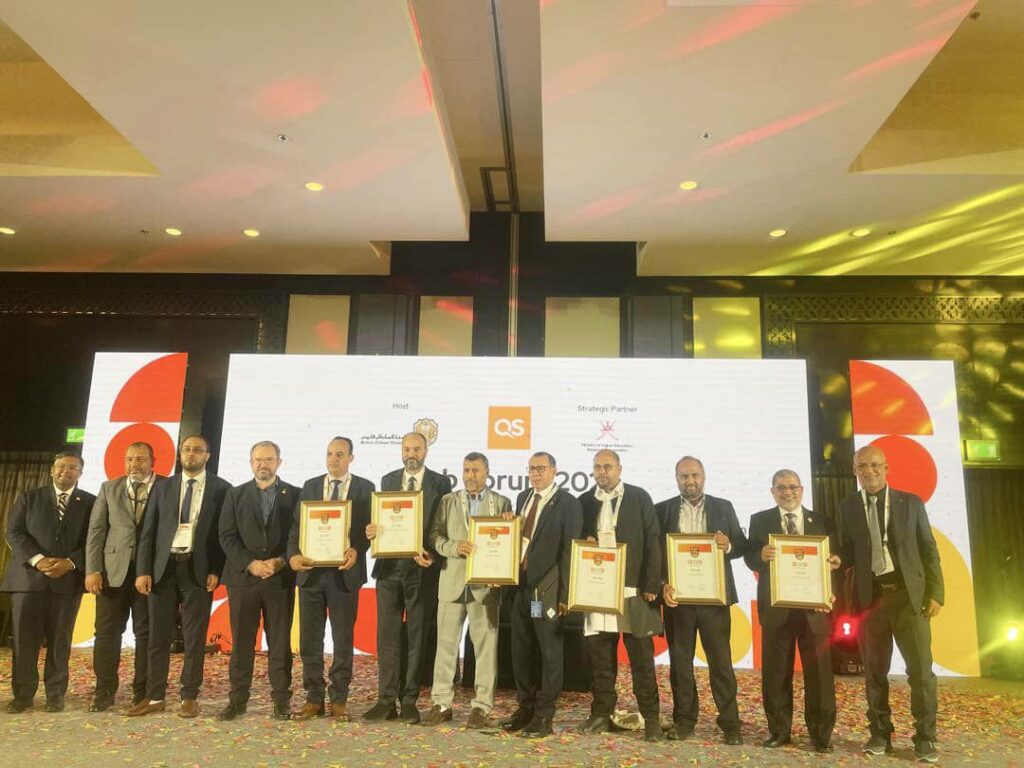Muscat | October 16–17, 2025
The QS Arab Region Forum concluded its activities on Thursday evening, October 16, 2025, in the Sultanate of Oman. The forum is recognized as a leading platform for envisioning the future of higher education in the Arab region.
To mark the occasion, a vibrant ceremony was held, showcasing the pinnacle of academic and research collaboration. The event was attended by prominent figures, including Her Excellency Professor Rahima bint Ibrahim Al-Mahrouqi, Minister of Higher Education, Research and Innovation of Oman; the Vice President and CEO of QS; and presidents of participating universities, led by the President of Sultan Qaboos University.
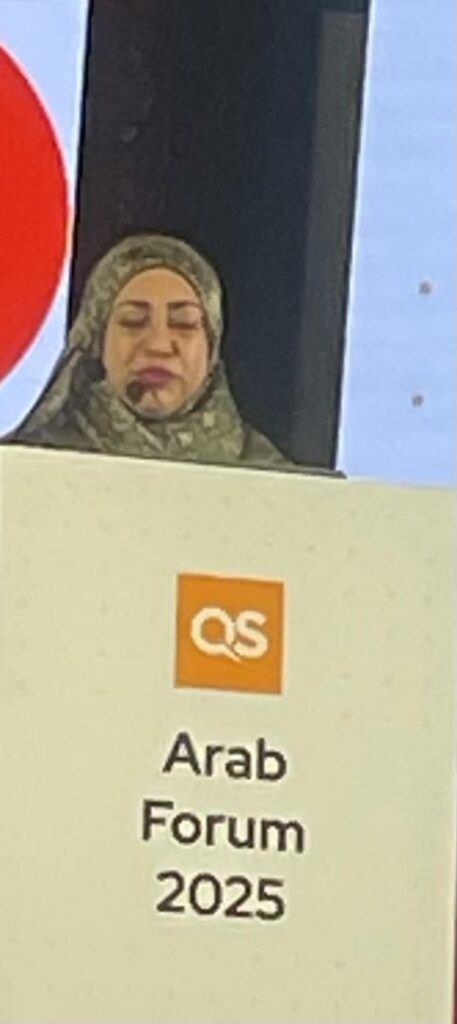
The ceremony featured keynote speeches by Mr. Ben Sowter, Vice President of QS; Dr. Ashwin Fernandes, Executive Director of QS for the Middle East and Africa; Professor Fahad bin Al-Jalandi Al Said, President of Sultan Qaboos University; and the Omani Minister of Higher Education. The speeches emphasized the vital role of Arab universities in achieving sustainable development and keeping pace with the global knowledge revolution.
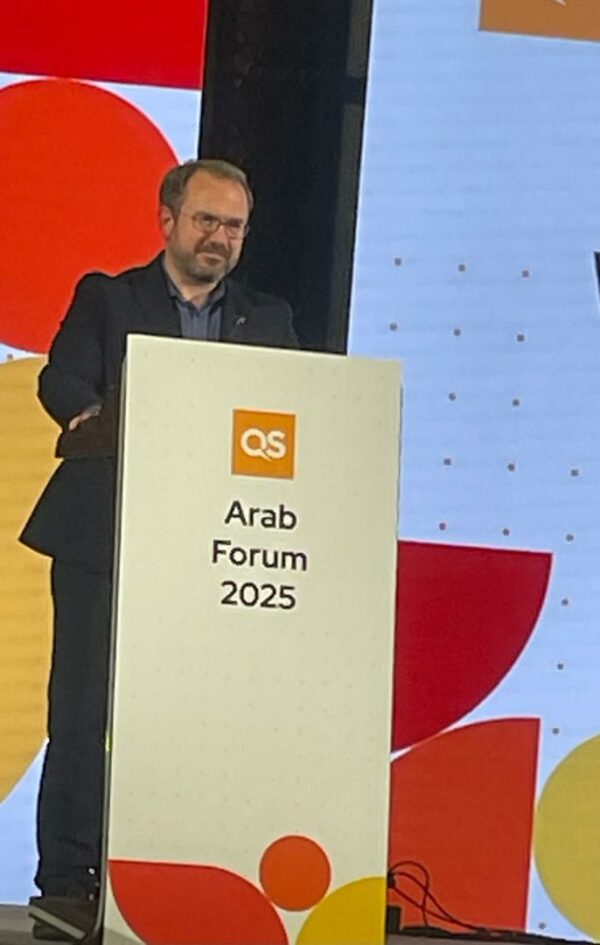
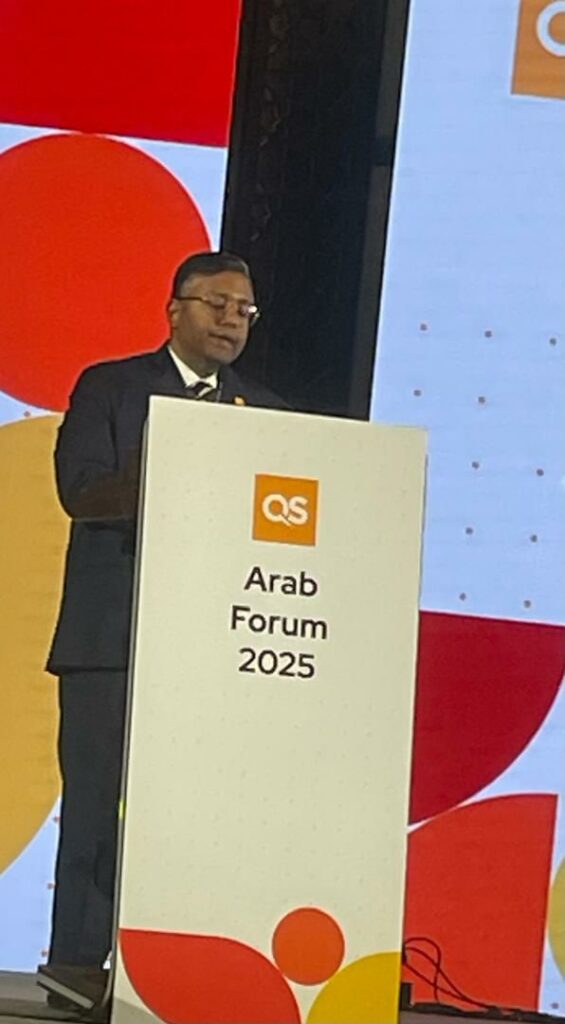
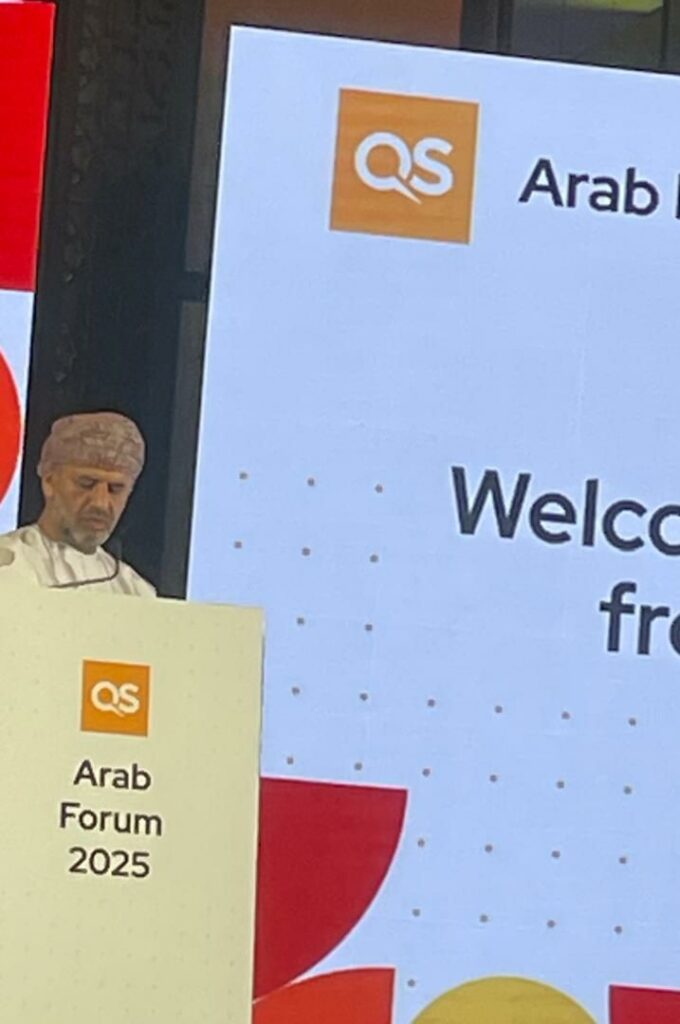
The highlight of the event was the recognition of the most distinguished universities in the Arab region, as part of the newly released QS Rankings for 2026. In a global acknowledgment of its growing academic and research reputation, Hadhramout University was honored. Professor Dr. Mohamed Saeed Khanbash, President of the University, ascended the stage to receive the Certificate of Excellence. This recognition underscored the university’s significant efforts to meet international ranking standards, which are based on precise indicators including academic and employer reputation, international research collaboration, faculty-to-student ratio, research citations per faculty member, and the proportion of international faculty and PhD holders.
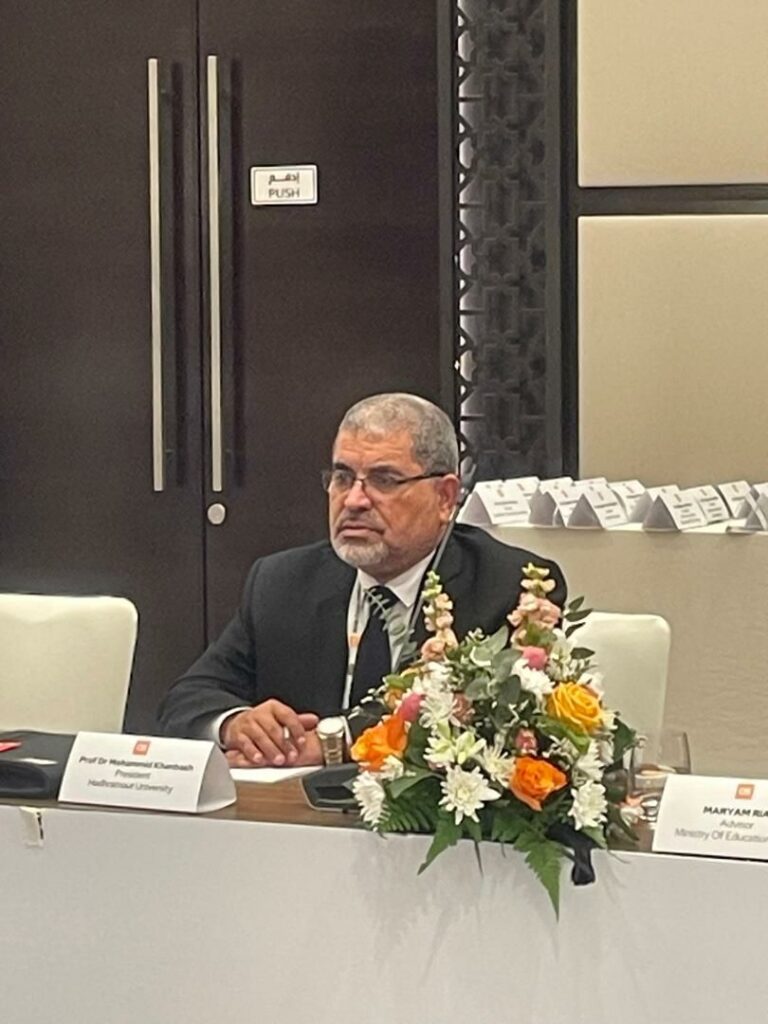
On its second and final day, the QS Forum hosted three high-level panel discussions focused on future challenges and opportunities. The first session, titled “Wise Leadership,” explored the importance of flexible and empathetic leadership in fostering growth and sustainability within higher education institutions in an era of rapid change. The session examined how leaders can balance strategic ambition with human empathy to create environments where staff and students feel valued, motivated, and connected, offering practical tools to cultivate an inspiring institutional culture.
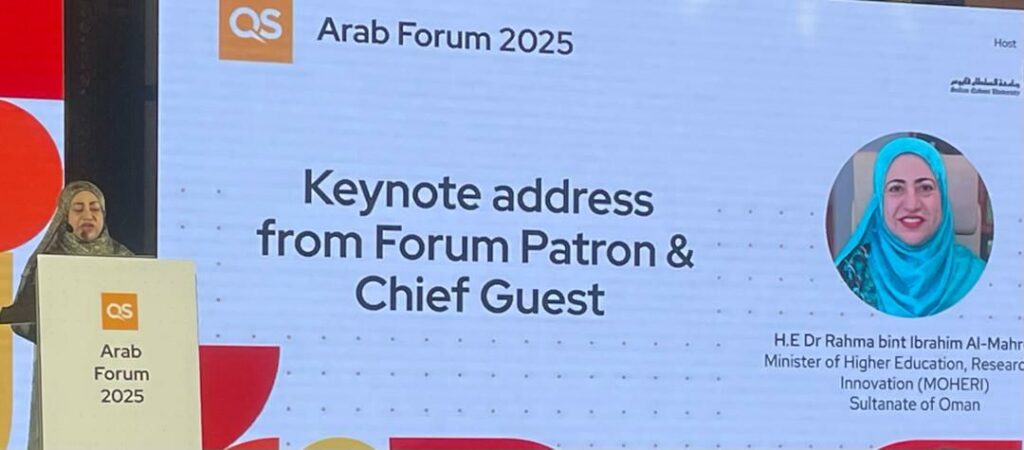
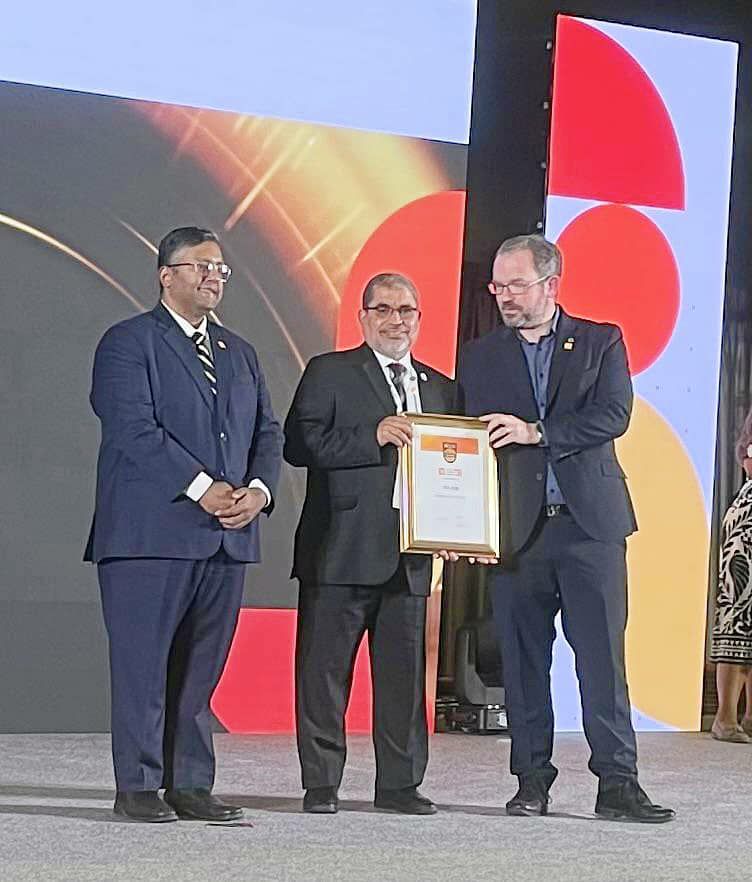
The second session, titled “The Skills Race,” highlighted how universities can adapt to transformations in the labor market driven by automation and artificial intelligence. It explored ways to enable higher education institutions to anticipate future skill demands and integrate flexibility, creativity, and digital competence into academic programs. The session emphasized the importance of strengthening partnerships between universities and industry sectors to bridge the gap between theoretical education and market needs.
The forum concluded with a strategic session titled “Shaping the Next Phase in the Arab Region,” which moved beyond rankings and superficial reforms to focus on long-term strategic visions.
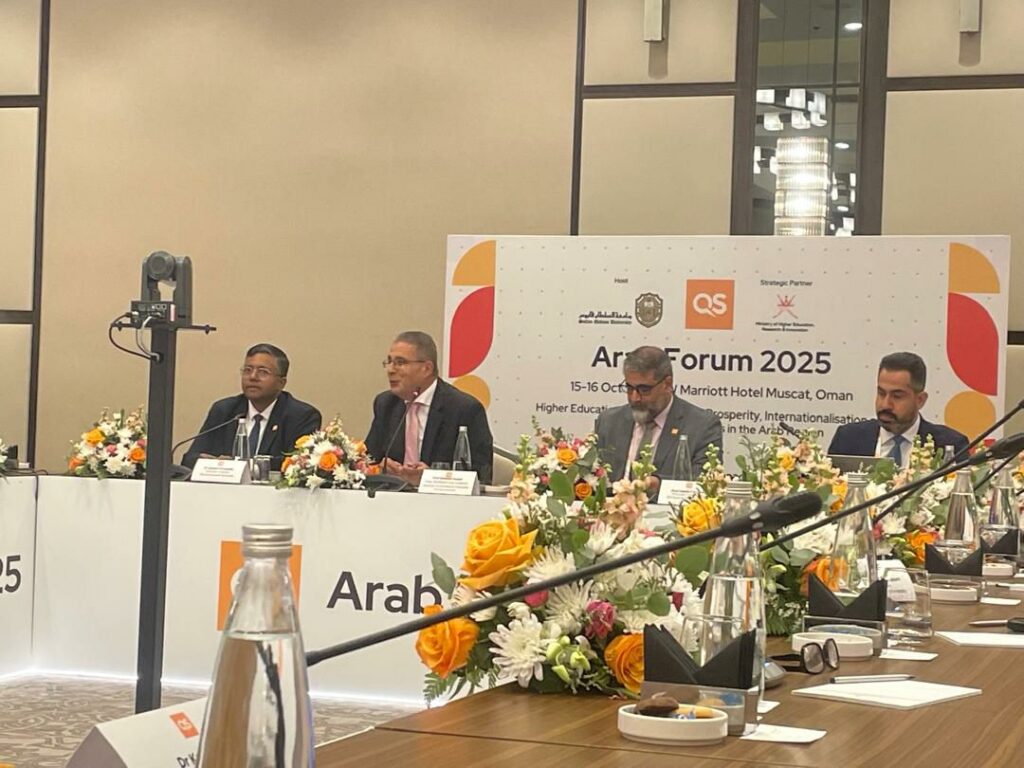
Participants offered rich insights into the prospects of the coming decade, addressing key themes such as digital transformation, adoption of AI technologies, enhancing the impact of scientific research, and improving graduate employability.
Higher education leaders agreed on the importance of developing a shared roadmap to define strategic priorities that transform the current momentum into sustainable success, reinforcing the global academic standing of Arab universities.
